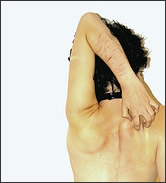 Study finds 1 in 12 teenagers self-harm but most stop by their twenties
Study finds 1 in 12 teenagers self-harm but most stop by their twenties
Despite self-harm being one of the strongest predictors of completed suicide, 90% of young people who self-harm as adolescents cease self-harming once they reach young adulthood. However, those who start self-harming as young adults will have often experienced mental health problems as adolescents, such as anxiety or depression, which should be treated.
The study by Dr Paul Moran at the Institute of Psychiatry at King’s College London, and Professor George C Patton from Centre for Adolescent Health at the Murdoch Children’s Research Institute, Melbourne, Australia was published today in The Lancet and found that around 1 in 12 young people self-harm as adolescents, with the balance skewed towards girls.
“Self-harm is one of the most significant predictors of completed suicide, ” a lead author, Dr Paul Moran, of King’s College London, said.
Of the people who have died by suicide, around 50-60% have a known history of self-harm, according to Professor Keith Hawton, Director of the Centre for Suicide Research, University of Oxford.
The study found that during adolescence, self-harm was associated with symptoms of depression and anxiety, antisocial behaviour, high-risk alcohol use, cannabis use and cigarette smoking. Additionally, those who experienced depression or anxiety during adolescence were around six times more likely to self-harm in young adulthood than adolescents without depression/anxiety.
These findings are discussed further in this Lancet podcast
Source: The Lancet Kings College London
